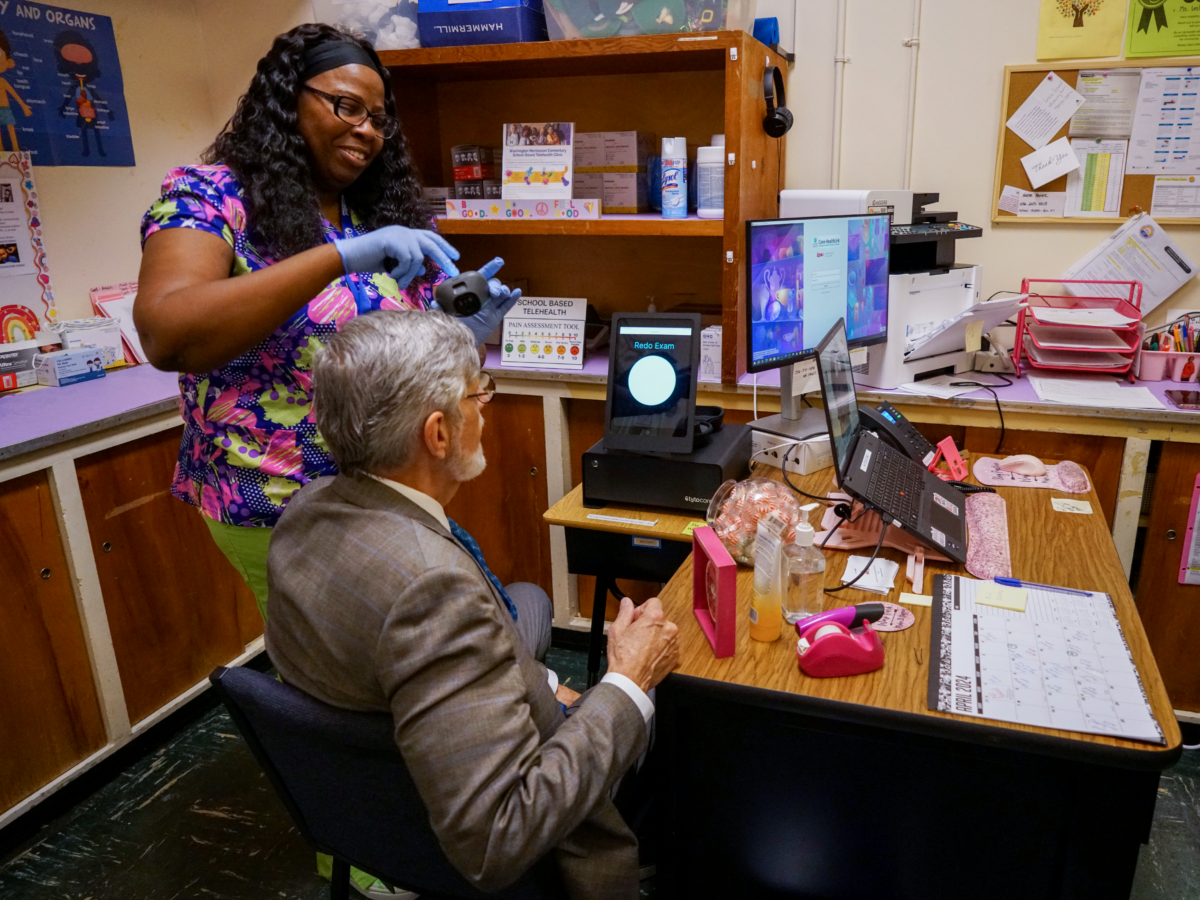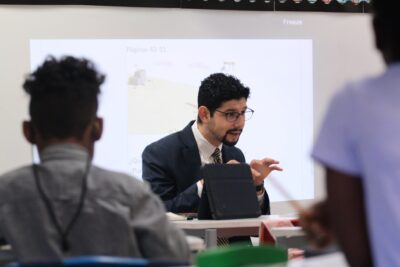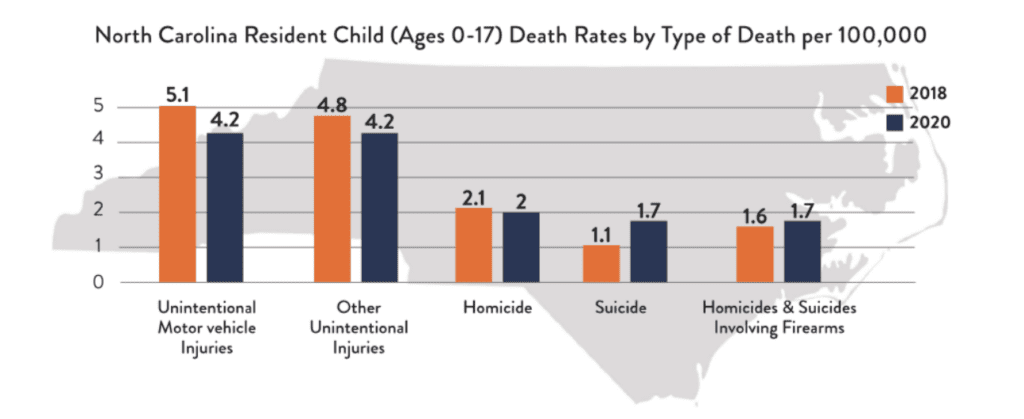
Sec. Kody Kinsley of North Carolina’s Department of Health and Human Services (DHHS) recently visited Washington Montessori Elementary School in Greensboro. Along with members of the State Board of Education, Kinsley learned about the impact of telehealth and Medicaid expansion on Guilford County Schools, including a significant decrease in chronic absenteeism.
“Many leaders across the state, including leaders here today, have fought really hard to expand access to health care through Medicaid expansion and through strategic investments,” said Whitney Oakley, superintendent of Guilford County Schools.
Kinsley is one of those leaders. Having grown up in North Carolina without health insurance, access to care for students is personal to him.
“We’re working hard to move this system of care from one that only keeps people in a constant state of crisis to one that tries to move us to being healthy and well and prevention as our first word,” said Kinsley.
![]() Sign up for the EdWeekly, a Friday roundup of the most important education news of the week.
Sign up for the EdWeekly, a Friday roundup of the most important education news of the week.
One of the contributing factors to chronic absenteeism is missing school due to illness or doctor’s appointments. Telehealth allows students to be seen by a provider virtually at school, which is resulting in fewer students leaving school to attend medical appointments or because they don’t feel well.
In the last year, Washington Elementary has seen a decrease of 23% in chronic absenteeism compared to a 3% decrease district-wide, according to José Oliva, chief of staff at Guilford County Schools.
“We’re making it easier for our families, especially our working families, to access care for their children. Working families who all too often work two or more jobs do not have to leave work early to get a doctor’s appointment. It all happens at school where they already are,” said Oakley.

Telehealth implementation
Guilford County Schools works in partnership with the Guilford County Department of Health and Human Services to plan and implement coordinated school health programs. The Guilford DHHS team currently provides nursing care at all schools in Guilford County. This care is especially important for the more than 14,000 students in the county who have chronic health conditions.
The district also has partnerships with Cone Health and the Guilford Education Alliance. Together they have worked with the board of county commissioners to expand telehealth into schools.
Guilford County Schools currently has 12 telehealth sites for physical health and is planning to open 12 additional clinics in the 2024-25 school year, prioritizing elementary schools with high concentrations of poverty. This telehealth expansion is possible due to $7 million in funding from the county commissioners, the Duke Endowment, the Oak Foundation, and other philanthropies.
Back in May 2023, GCS launched their strategic direction anchored in four focus areas. Increasing access to health care through telehealth is part of their efforts to meet the third focus area – “Strengthen health, wellness, and safety in schools.”
Focus areas:
- Accelerate learning.
- Recruit, retain, and reward top talent.
- Strengthen health, wellness, and safety in schools.
- Prepare students for the world.

Mental health support
In addition to seeing medical providers for physical health concerns, more students are now able to access mental health care for behavioral health challenges through telehealth. During the 2023-24 school year so far, students and staff in Guilford County Schools have completed over 5,000 therapy sessions provided by virtual and in-person resources.
“We’re seeing more need for mental health support than ever before. When a child is experiencing a mental health challenge, we know that they’re not able to focus on school. Our ability to support students and families with multiple ways to access mental health support really has been a game changer for many of our families,” said Oakley.
More of Guilford County Schools



While the aftermath of the pandemic has shown an increase in mental health challenges for students and families, these challenges had been increasing for years before the pandemic. From 2008 to 2020, the rates of death from suicide among people ages 12 and over increased 16% overall. Specifically, the rate for youths ages 12-17 increased from 3.7 per 100,000 to 6.3 per 100,000, according to the National Healthcare Quality and Disparities 2022 report.
In addition, NC Child’s 2023 child health report card issued an “F” in mental health for North Carolina. The report states that the only two causes of child death in North Carolina that are increasing are suicide and homicides and suicides involving firearms.

“The suicide rates among youth have been steadily increasing for decades, and while I believe that loneliness leading to depression and stress leading to anxiety has pushed these issues into our vocabulary, into our conversations in ways that they had not before, this is not new,” said Kinsley.
As DHHS and Guilford County Schools continue to implement mental and physical health supports, Kinsley hopes that the positive impact of the additional supports, such as the decrease in chronic absenteeism and increase in mental health support, are felt on an individual and community level.
“We know that health and education go hand in hand. I’m so grateful that we have in Guilford County a partner that sees that that same type of creative solutioning is required for us to solve these problems,” said Kinsley.
Editor’s note: The Duke Endowment and the Oak Foundation support the work of EdNC. José Oliva serves on EdNC’s Strategic Council.
Recommended reading



